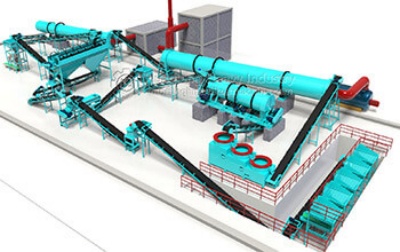
Fertilizers made through organic fertilizer production lines offer unique environmental advantages that chemical alternatives can’t match.
1. Reducing Pollution
Traditional farming relies heavily on chemical fertilizers, which often lead to soil contamination and water eutrophication. Organic fertilizers act as natural cleansers. For instance, they reduce the activity of heavy metals in soil, minimize harm from chemical fertilizer residues, and prevent water pollution caused by fertilizer runoff. This helps protect lakes, rivers, and other water ecosystems.
2. Improving Soil Structure
Organic fertilizers are rich in humus, a substance that makes soil loose and porous. Unlike chemical fertilizers that harden soil over time, this improved structure boosts air circulation and water absorption. It also creates a better environment for soil microbes to thrive, enhancing the soil’s natural cleaning ability and fertility. Over time, this builds a healthier soil ecosystem.

3. Cutting Emissions and Saving Energy
Organic fertilizer production uses agricultural waste like crop straw and livestock manure as raw materials. By turning these discarded materials into fertilizer, organic fertilizer production lines reduce greenhouse gas emissions from burning or dumping waste. This aligns with low-carbon, eco-friendly practices.
4. Supporting Ecological Balance
Organic fertilizers improve crop quality, which ripples through the food chain. Healthier crops mean better food for herbivores, which in turn sustains carnivores. This balance helps maintain stable, resilient ecosystems.
In short, organic fertilizers from production lines are environmentally friendly and play a vital role in sustainable development. They’re not just good for farms—they’re good for the planet.